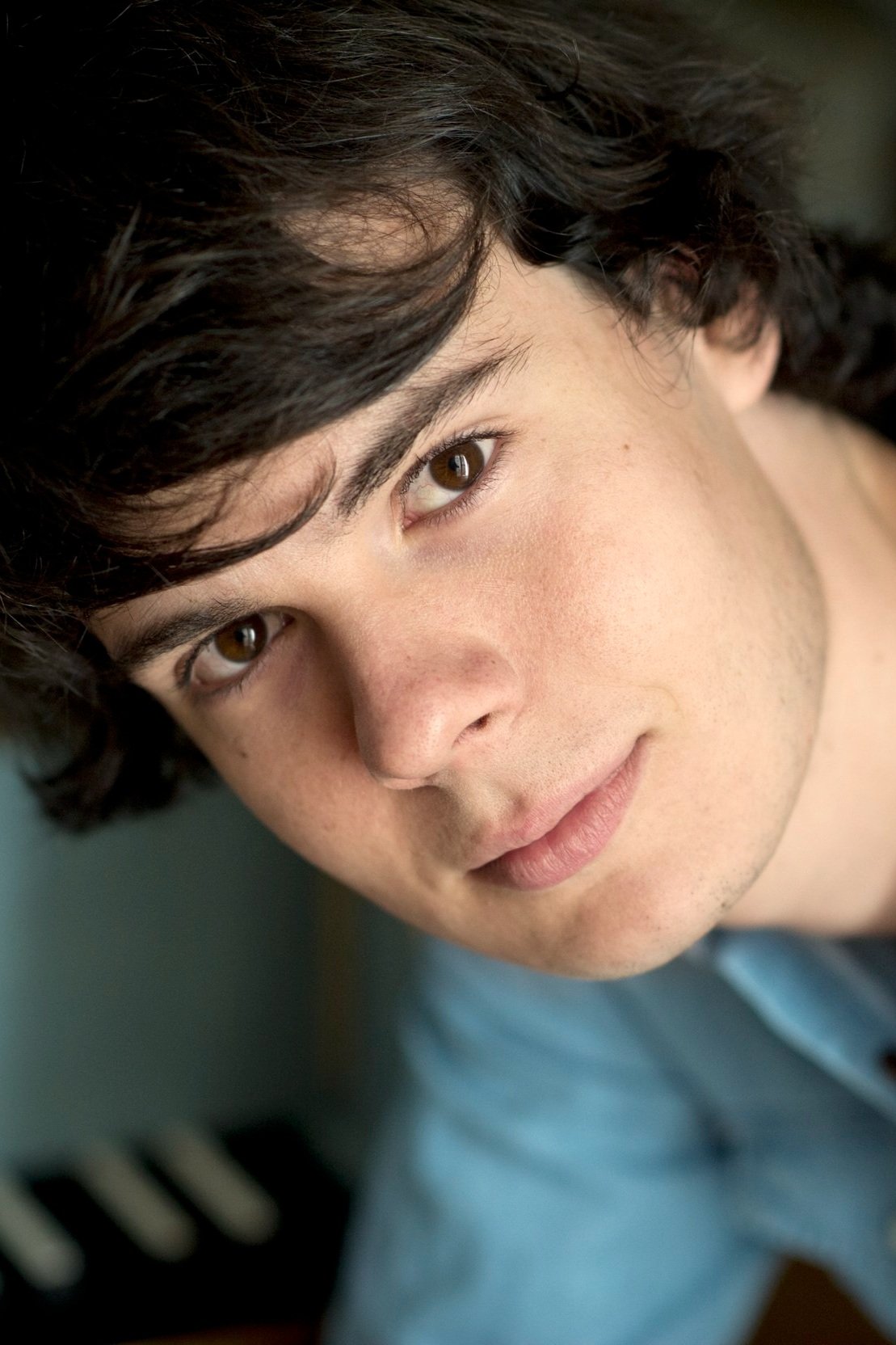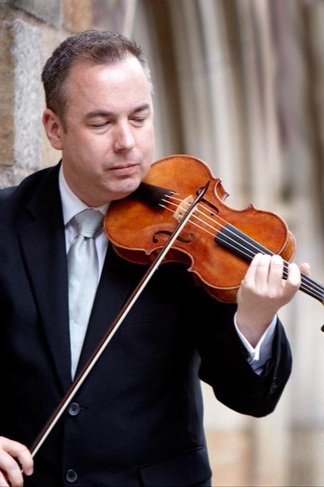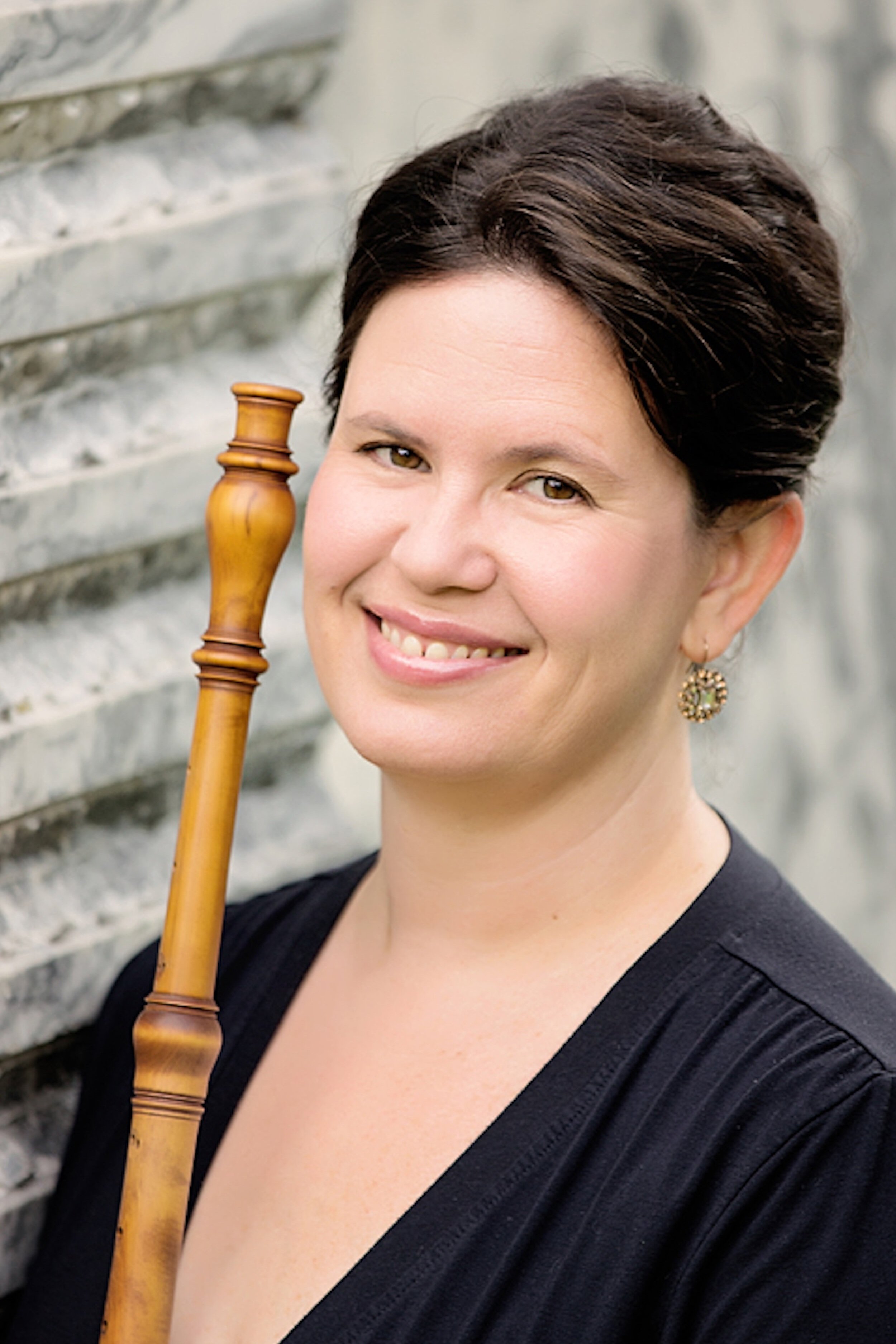2022-2023 Season Artists
Frédérick Haas
Harpsichord
French harpsichordist, Frédérick Haas' passion for the harpsichord started in early childhood and he began playing at the age of twelve. He studied the harpsichord, organ and musicology at Paris and Amsterdam, and was enriched by regular contact with important original instruments and the workshops of harpsichord builders and restorers, and at master classes.
At the age of 26, he recorded his first solo album, dedicated to the harpsichord suites by J.H. Anglebert. His discography, regularly acclaimed by the international press, was soon enriched by recordings of the complete works for harpsichord by J. Ph. Rameau, works by J.S. Bach (English Suites, Goldberg Variations, Concertos, Well-tempered Clavier, Partitas), F. Couperin, D. Scarlatti and others.
Frédérick Haas performs as a soloist worldwide on the harpsichord and fortepiano in addition to directing Ausonia, the ensemble which he co-founded with violinist, Mira Glodeanu, the purpose of which being to give birth to original musical projects.
Frédérick Haas has been the professor of harpsichord at the Royal Conservatory of Brussels since 1997. The harpsichord by H. Hemsch, 1751, and a fortepiano F. Hofmann, Vienna, 1785-1790, have been entrusted into his care.
In 2015, Frederick Haas founded the publishing organisation, Hitasura Productions, a platform for the free deployment of his future projects.
In 2018, as Producer for national broadcasting compagny France Musique, Frédérick Haas was the artistic coordinator of the wide project Scarlatti 555.
John Walthausen
Harpsichord
John Walthausen has been heard across Europe, North and South America, and Asia as a harpsichord and organ soloist and ensemble artist. He holds degrees from the Oberlin Conservatory of Music, the Conservatoire National Supérieur de Paris, and the Schola Cantorum of Basel, Switzerland, and from 2015 to 2016 he served as Organist in Residence at Sapporo Concert Hall in Hokkaido, Japan, which released his debut album, De Fil en Aiguille. In 2012 he won first prize at the Pierre de Manchicourt International Organ Competition in Béthune, France, a competition devoted to North German music of the seventeenth and eighteenth centuries.
In 2019, John co-founded the ensemble Filament with violinist Evan Few and viola da gamba player Elena Kauffman. Their debut recording of Dietrich Buxtehude's Sonatas Opus 1 is expected for release the summer for 2024. John appears regularly with ensembles throughout the Mid-Atlantic region, including Washington Bach Consort, Variant 6, the Philadelphia Bach Collegium, and Tempesta di Mare. He also serves as Director of Music at the First Presbyterian Church of Germantown and as Artistic Director for the Philadelphia Organ Festival.
Hubert Hazebroucq
Baroque Dance
Hubert Hazebroucq is a professional dancer, choreographer and teacher specialized in historical dances since 1998. He has performed with many Baroque and Renaissance dance companies, and has been the assistant of Christine Bayle.
He is the artistic director of the Company Les Corps Eloquents, founded in 2008, and performing in many European countries (Netherlands, Germany, England...).
As a choreographer he is regularly invited by musical ensembles (among others, Doulce Mémoire, for a project about François the First). He is also an independant searcher and has a master’s degree about Dance technique in the XVIIth c. He collaborates with academic searchers and has received three times the grant for the Research and the Repertoire from the Centre national de la Danse in Paris.
David Kim
Fortepiano
Born in upstate New York to Korean immigrants, David’s early interests were in math, philosophy, and chemistry, and he matriculated at Cornell University as a Presidential Research and National Merit Scholar in chemistry. He never seriously considered music until a life-changing encounter with Beethoven’s piano sonatas convinced him to trade the lab stool for the piano bench. He launched himself into music, working at Cornell with Malcolm Bilson and James Webster, before heading to Europe where he made his orchestral debut in Vienna and continued his musical studies in Germany as a Fulbright scholar.
He returned to the United States, earning degrees in music from Harvard, Yale, and the New England Conservatory. These studies overlapped with an increase in his performance activity, and he is now primarily a concert artist. He has performed as a concerto soloist, recitalist, and chamber musician in South Korea, Austria, Belgium, the Czech Republic, Italy, Germany, and the United Kingdom, as well as completing multiple east and west coast tours in North America. A frequent guest artist, he has conducted residencies at Stanford, Bucknell, Indiana-Bloomington, Duke, and Pennsylvania State Universities, the Universities of Utah, Washington, and Wyoming, and Colby and Bowdoin Colleges, as well as serving as guest speaker and performer at the University of Michigan Piano Festival and the University of California-Berkeley’s Piano Institute, and appearances at the Banff, Orvieto, and Norfolk Music festivals.
David is also active as a recording artist. His debut solo CD of Mozart and Beethoven sonatas (available for purchase here) was recorded on a historically-appropriate Viennese 5-octave piano, and was acclaimed for its “great sensitivity to the music’s rhetoric, [yielding] movements that come across as journeys of discovery” (Fanfare). His follow-up project, a much-anticipated all-Schumann album (available for purchase here) on a Viennese 6 1/2-octave piano closely modeled on Schumann’s personal instrument, was heralded as "poetry of the highest order... Schumann for the ages!" (Skagit Early Keyboard Museum) and praised as “endlessly fascinating… thanks to Kim’s thoughtful phrasing and 19th-century disregard for strict observance of time… [T]his familiar music yields unexpected depth and a sheer beauty that is unrivaled by performances on modern instruments. Kim’s interpretation is an essential part of our understanding of this composer, the musical world in which he lived, and the joy of experiencing compositions and playing of the highest order” (ConcertoNet).
In addition to his performance activities, David is active as a musical thinker and scholar. He has won two international IES research grants, and written articles and chapters on early recordings, musical notation, piano organology, and improvisation. One of his earliest projects argued for a new understanding of hairpin notation, and points to the radically different interpretive practice suggested by the performances of Brahms’ closest students and colleagues. (For more on this, click here.) His current musical research centers on interdisciplinary approaches to interpretive process.
Recent Artists
Justin Taylor
Harpsichord
Duo Gordis-Hantaï
Viola da gamba and Harpsichord
Kathryn Cok
Harpsichord
Margaret Owens
Oboe and Recorder



















